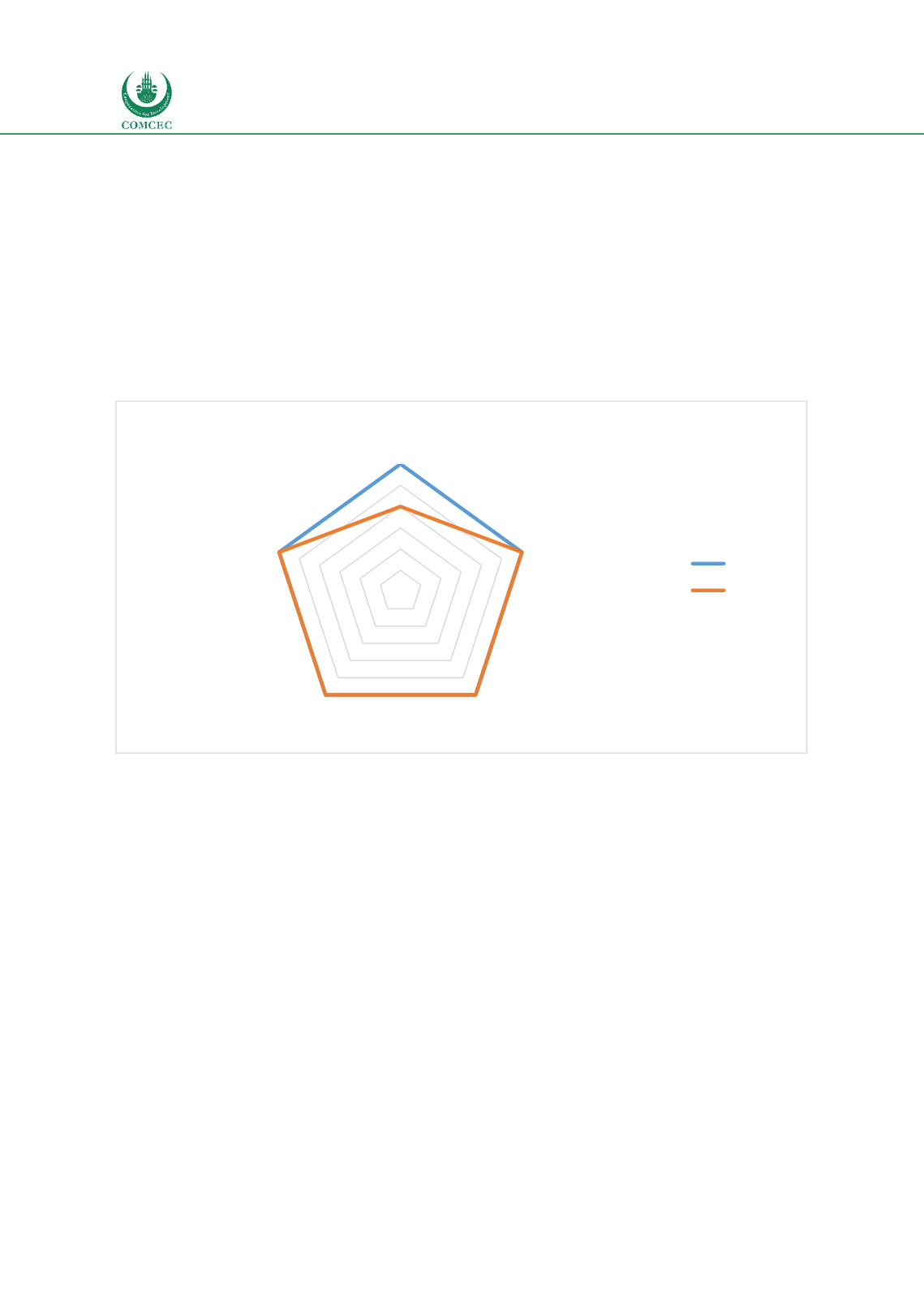

Enhancing Public Availability of Customs Information
In the Islamic Countries
60
More detail on these scores is available in Annex 5, which shows the responses to individual
questions in the TFIs. The detailed data confirm the view that Malaysia is generally a strong
performer in relation to information availability, but there are areas in which improvement
could be possible, such as the timeliness of provision of information, and some other issues
related to transparency and process.
The picture that emerges from the UNGS data, see figure below, is somewhat different. It shows
Malaysia out-performing Singapore in terms of having a fully established NTFC, and performing
equally with Singapore in all other areas. These data are consistent with Malaysia being a global
leader in information availability, based on the five data points relevant to this issue in the UNGS
dataset.
Figure 33: UNGS data for Malaysia with Singapore as comparator.
Source: UNGS.
Malaysia ratified the TFA on May 26
th
, 2015, and has notified all four of the first articles dealing
with information availability in Category A. In other words, the government is confident that it
already complies with these obligations, and so accepts that they became binding upon entry
into force of the Agreement. Malaysia does not currently have any Category C notifications, so
there is no evidence that further technical assistance is required to develop capacities in the area
of public information availability.
Administrative and Consultative Processes to Support Information Availability
Malaysia has had a Single Window in operation since 2009. It is now contained in the
myTRADELINK website
(http://www.mytradelink.gov.my/), which is an online platform for
document filing, payment, and information flow. The website is available in English and Malay.
It contains a link to the Customs Act, but does not appear to have a comprehensive database of
trade-related regulations going beyond that one piece of legislation. Malaysia of course
publishes all such legislation, but there does not appear to be a single digital repository bringing
it all together, so some degree of searching is required to find the relevant rules. Data available
on the website show that the single window processes around 1,000,000 e-declarations per
0
0,5
1
1,5
2
2,5
3
National Trade
Facilitation
Committee
Publication of
Regulations
Stakeholder
Consultations
Advance Publication
Advance Ruling
Malaysia
Singapore
















